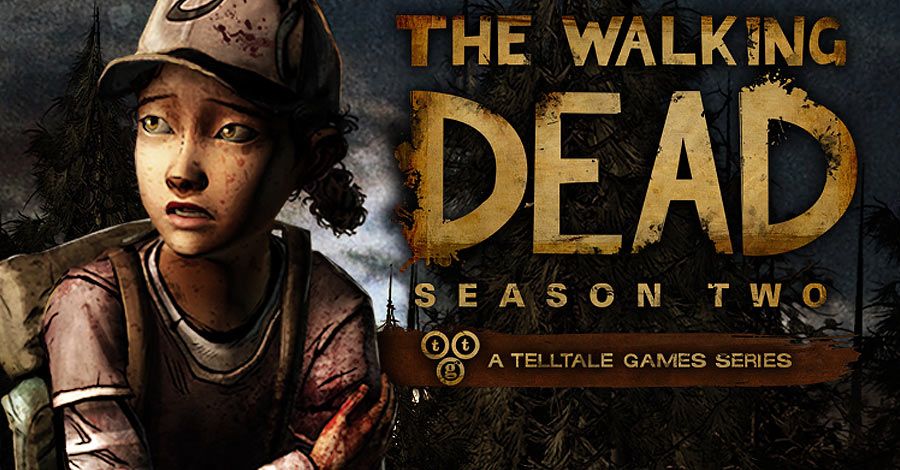"How did we get here? Sitting in the snow, leaning up against a tree, bullet in my leg -- but alive, when so many of my friends are dead for no good reason. And I couldn't do anything to stop it. Everyone we set out with just gone -- Nick, Pete, Alvin and Becca, Carlos, Sarah. I coulda done more, and that ain't up for debate. I know it in my bones, and I gotta live with it."
This series of lines from Luke succinctly summarize how every player could have felt during the course of Telltale Games' "The Walking Dead: Season 2." As a game predicated on choice, it would have been easy for the award-winning series to rest on its laurels and simply drag things along to a suitable conclusion -- but over the course of its five-episode lifespan, "The Walking Dead: Season 2" has never taken the easy way out, making it perfectly clear that once a decision is made, retrying is simply not an option.
The aptly named "No Going Back" is a masterpiece of emotional fortitude, and it's understandable why Telltale has decided to use the hashtag #MyClementine to help promote the final piece of the puzzle. By the end of episode five, it's clear that the end was reached because of your choices -- and there's certainly the possibility for quite a few different journeys through the season. However, it's truly the choice that makes the full and complete season worth playing to see your version of Clementine grow. Starting off more like an extension of season one, season two has truly become its own animal, using its episodic formula and spacing to greater effect than ever before.
And that's where the genius of Telltale's model comes through. During episode 3, I was hellbent on playing as a tough-as-nails Clem, willing to do whatever it took to get the job done, but after the carnage and emotional trip she -- and by extension, I -- went through in episode 4, I wanted to trust people again. I wanted Clem to be the beacon of hope she once was. And the game recognized that, verbally punishing me for my previous callousness. It's a genius move to spread out the episodes, giving the player -- but not the characters within -- some time and distance between chapters.
It's difficult, much like previous episodes, to fully discuss "No Going Back" without spoiling a little bit of plot. Depending on your choices in previous episodes, your experience may vary, but Telltale has done an excellent job of making the choices harder and harder as episodes go by. It's no longer just about who to save or who to leave -- it's about actively considering the greater good and what you'll need down the road. And sometimes, that means weighing what seems to be the morally right thing to do versus the right thing to do for survival, and it's no small choice -- well, choices. There are a lot of them. Frankly, this season finale makes Telltale's entire first season seem like a day at the beach.
The finale will be emotional enough for those that have only played through the second season, but it's those who braved through Lee Everett and Clementine's story in "The Walking Dead: Season 1" that will find the most emotional resonance. There were two moments in the episode during my playthrough that genuinely made me tear up, experiencing a level of emotion I hadn't felt from the game since the end of Season 1.
As for Clementine, it's amazing how much she's changed from her first reappearance in the first scenes of episode one. Melissa Hutchinson once again proves her range and versatility with the character, providing one of the most believable Clementine performances yet. Special recognition should also be given to Gavin Hammon, who has continuously evolved Kenny since his very first appearance in season one to the finale of season two. It's an incredibly varied performance that shows all sides of a very conflicted man, making his actions all the more terrifying as his true nature continues to be revealed.
(Also, Telltale writers, way to make me completely get on board with the character of Jane. What a fantastic addition to "The Walking Dead" universe. Please don't kill her. Please?)
Telltale has become a pioneer in games of choice. "The Walking Dead" transcends the traditional point-and-click genre game and has taken leaps and bounds toward being considered art in its own right -- and it certainly helps that the company keeps topping itself episode after episode. I felt mentally drained after completing the 2-hour playthrough, actively distressed at what the game had forced my hand to do. While games like "Mass Effect" might state choice is a huge factor in gameplay, "The Walking Dead" makes choice seem like reality through an extraordinarily strong branching script that makes players feel like they are Clementine, rather than just someone controlling her.
The "Mass Effect" comparison may not even be all that apt because, really, there is no other game to which to compare "The Walking Dead: Season 2 - No Way Out." Everything, from the new dynamic direction and graphics to the sound design and music choices, is far and away some of the best gameplay I've experienced in recent years -- and that includes all of Telltale's previous efforts. The build to episode five is so good, so incredibly well teased and established that it can't be evaluated simply as a game. The fifth episode puts a cap of storytelling excellence on a series of incredible episodes. Season three is going to be a tough prospect for the studio, because "No Way Out" isn't just the most impressive episode of "The Walking Dead," it will likely go down as one of the most impressive gaming experiences of all time.

